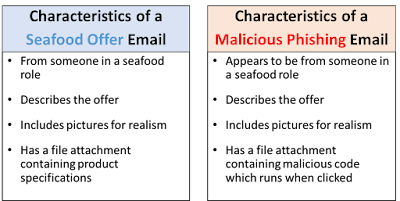Seafood companies are prioritizing e-commerce platforms on
their agenda for 2023. It’s an idea whose time has finally come - with so many
changes taking place in availability, pricing, shipping and risk management,
seafood companies are recognizing the need for a bigger, more flexible network
of buyers and suppliers they trust, in order to grow their business in
challenging times.
But not all platforms are created equal. Here’s a guide for seafood companies ready to test the waters of e-commerce platforms this year. Make sure you ask and understand these 6 things to know the platform you select is right for you:
- Who’s
allowed into the club? Make sure it’s a trusted community you’re joining.
Does the platform let anyone in, or do they perform background checks
first? How strong are those background checks? Does the platform suspend
companies that violate the platform’s code of conduct?
- How real are the offers? How does the platform
ensure offers are real? One of the most frustrating parts of the online
experience is pursuing an offer only for it to vanish. Don’t become a
victim of companies who are more interested in fishing for your interest
than buying or supplying you actual fish.
- Who sees your offers and negotiations? The last thing you want
is for your competitors to see your prices, or for all your customers see
that you offered a better deal to your top 5 customers. Understand whether
anything you post in the platform is visible to non-members, and ask for a
demo to see for yourself how well you can control your own information
within the platform. Remember - negotiations and final terms of the deal
should never, ever, be visible to anyone but you and the buyer or supplier
you transacted with.
- Do you know who you’re trading with? Some platforms stand in
the middle of the transaction, so you don’t know who your buyer or
supplier is. Steer clear – you need to expand your network, not diminish
it.
- Can you try it for yourself before you commit? Does the vendor require
payment up front or do they let you see the value of their platform first?
Platforms are new, and all platforms don’t work for everyone. You can only
decide if it works for you by trying it out.
- What
is the vendor like to work with? E-commerce platforms offer great advantages. But you
need to be able to trust and rely on your vendor as much as you do your
buyers and suppliers. Do you have access to key staff or are you just a
number with no influence? Do they really listen and are they helpful?











